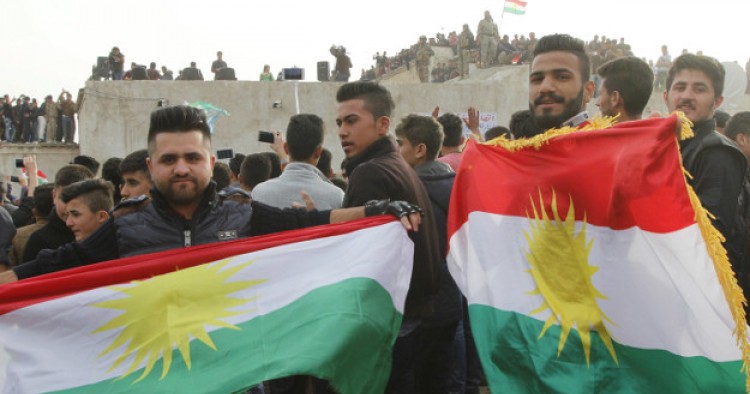Faleh al-Khazali, a leader of Iraqi militia group Kata'ib Sayyid Shuhada, has said that the governor of Kirkuk Province, Najmaldin Karim, is defying the law by staying in power and that Prime Minister Haider al-Abadi should take over his responsibilities. He added that the Iraqi troops and Popular Mobilization Forces (P.M.F.) will soon liberate the region of Hawija from the Islamic State and “spread across Kirkuk and disputed regions to restore the province’s prestige.”
Separately, in contrast to its statement last week calling for seizing Kirkuk from the Kurds, Harakat al-Nujaba, another Iranian-sponsored militia group within the P.M.F., emphasized that its forces would not fight Iraqi Kurds despite last week’s referendum vote. “We don’t want to experience a war and confrontation with the Kurds. Other wars are enough for us. The wound inflicted upon us by Daesh [Islamic State] will not be healed,” Hashim al-Musawi, the group’s spokesman, said. He also claimed that the Iraqi security forces and P.M.F. will recapture Hawija within days.
Jasim Mohammed Jafar, an Iraqi member of parliament, alleged today that Barzani has ordered Peshmerga commanders in Kirkuk, Salalahuddin and Diyala provinces to fire on Iraqi security forces and federal police if they approach Kurdish-controlled oil wells.
Comment: Since the Kurdish Regional Government held an independence referendum vote last week, several Iranian-supported P.M.F. commanders have threatened retaliatory measures against Erbil. Particularly, they have urged Baghdad to retake the oil-rich province of Kirkuk from Kurdish forces. “The Iraqi government should act with determination to liberate Kirkuk from separatist paramilitaries before it is too late,” Harakat al-Nujaba said in a statement as Iraqi Kurds were casting their ballots. Hashim al-Mousavi, the group’s spokesperson, said the Baghdad government must not allow the Kurds to “steal Iraqis’ national wealth.”
Kata’ib Hezbollah, another Iranian-sponsored P.M.F. unit, made a similar threat. “Kurdistan’s referendum has no value and the resistance will take a series of measures to respond,” said Jafar al-Husseini, the spokesman of the group, said. “Officials in Kurdistan are American tools in Iraq and the region. Americans and the Zionist enemy are behind the separatism scenario of the Kurdistan region,” he added. The militia commander called K.R.G. President Masoud Barzani a “traitor” who “exploited” the emergence of the Islamic State to seize the oil-rich province of Kirkuk. He criticized the government of Prime Minister Haider al-Abadi for being “passive” toward Erbil in the past and urged Baghdad to act more decisively in the future.
Several Iran-aligned P.M.F. groups are taking part in the Hawija operation, including the Badr Organization and Harakat al-Nujaba. If tension between Baghdad and Erbil escalates further, Kirkuk may prove the first flashpoint between P.M.F. and Peshmerga forces.
Iran’s news defense minister has said that Tehran will work more closely with Baghdad to confront Iraqi Kurdish leaders who see independence. “We consider the separatist movement in Iraq detrimental for the region and we will spare no efforts to preserve regional countries’ stability and territorial integrity,” Brigadier General Amir Hatami said on Tuesday. “Now that this destructive movement has taken shape in Iraq, we will certainly expand our cooperation with this country [Iraq] to confront such actions.” The Iranian defense minister further equated the Iraqi Kurdistan’s push for independence with acts of terrorism by al Qaeda and the Islamic State. “Those who plan and implement separatism in Iraq should know that they are playing in in the field of America and the Zionist regime. This is because regional countries need peace, security and stability. And any action contrary to the popular wishes in regional countries is condemned to defeat.”
The Middle East Institute (MEI) is an independent, non-partisan, non-for-profit, educational organization. It does not engage in advocacy and its scholars’ opinions are their own. MEI welcomes financial donations, but retains sole editorial control over its work and its publications reflect only the authors’ views. For a listing of MEI donors, please click here.












